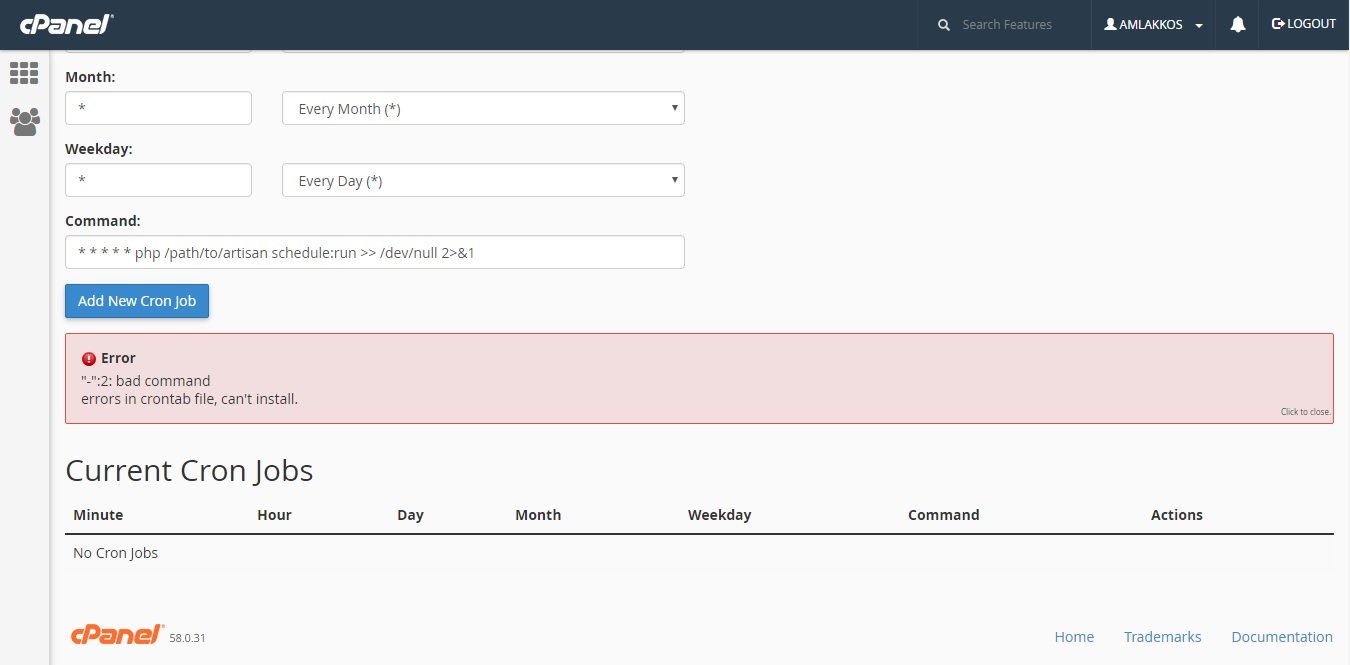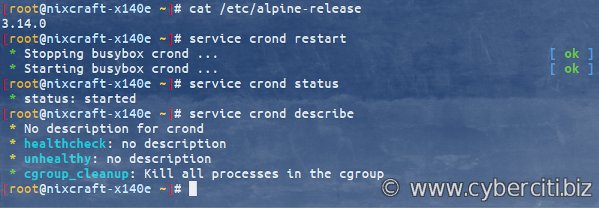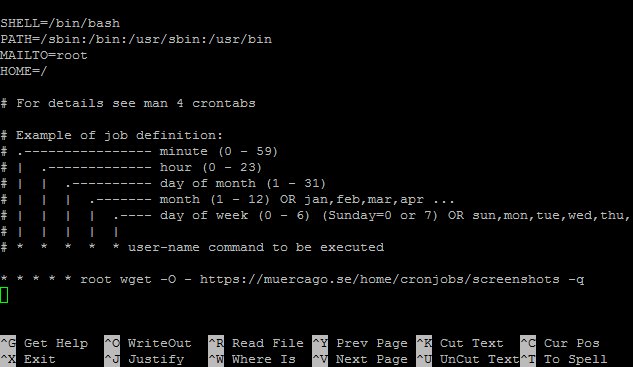Looking to automate tasks that need to be executed frequently? One solution is to use cron, a time-based job scheduler in Unix-like operating systems. But what if you need a cron job to run every 15 minutes? In this article, we’ll delve into the simple yet powerful technique of setting up a cron job to run at regular 15-minute intervals. Whether you need to process data, update information, or perform any other repetitive task, the insights shared here will help you achieve your goal effectively. So, without further ado, let’s dive into the world of cron run every 15 minutes and uncover the steps to implement this time-saving solution.
Cron Run Every 15 Minutes: A Powerful Tool for Automated Tasks
Cron, the time-based job scheduler in Unix-like operating systems, is a powerful tool that allows users to automate various tasks. One of the most frequently used features of cron is the ability to schedule jobs to run at specific intervals, such as every 15 minutes. In this article, we will explore the ins and outs of using cron to run tasks every 15 minutes, discussing its benefits, implementation, and best practices.
Understanding Cron
Before we dive into the specifics of running tasks every 15 minutes, let’s have a brief overview of cron itself. Cron is a utility that runs processes or scripts on your server at predetermined time intervals. It is widely used for scheduling repetitive tasks, such as backups, database cleanup, log rotation, and more.
Cron uses a special configuration file called a crontab, which stands for “cron tables.” This file lists the commands or scripts to be executed and the schedule at which they should run. Each user on the system can have their own crontab file, allowing for individualized scheduling.
The Syntax of a Cron Job
To understand how to schedule a task to run every 15 minutes using cron, it is essential to grasp the syntax of a cron job. Each line in a crontab file represents a separate task and follows a specific format:
* * * * * command
The five asterisks represent different time units that define when the command should be executed. From left to right, they represent:
– Minute (0-59)
– Hour (0-23)
– Day of the month (1-31)
– Month (1-12)
– Day of the week (0-7, where both 0 and 7 represent Sunday)
Using the asterisk (*) in any of these fields means “every.” For example, if you want to run a task every minute, you would use * in the minute field, like this:
* * * * * command
Running a Task Every 15 Minutes
Now, let’s explore how to set up a cron job to run every 15 minutes. To achieve this, we need to specify the desired interval in the minute field of the cron job. Here’s an example:
*/15 * * * * command
In this case, the */15 syntax means “every 15 minutes.” The command specified after the time schedule will be executed at 0 minutes, 15 minutes, 30 minutes, and 45 minutes past each hour.
It’s worth mentioning that the */15 syntax can also be written as 0,15,30,45 in the minute field. Both notations have the same effect, so you can use the one that you find most readable and intuitive.
Benefits of Running Tasks Every 15 Minutes
Scheduling tasks to run every 15 minutes with cron offers several benefits that can greatly streamline your workflow and optimize your productivity. Here are a few advantages of using this interval:
1. Real-time updates: By running tasks every 15 minutes, you can ensure that your data is always up to date, especially when dealing with rapidly changing information.
2. Timely notifications: If you need to send time-sensitive notifications or alerts, running tasks every 15 minutes allows you to provide prompt feedback or updates.
3. Efficient data processing: Regularly running tasks every 15 minutes enables you to process smaller chunks of data, improving overall efficiency and reducing the risk of overwhelming your system.
4. Quicker error detection: Frequent task execution allows you to catch errors and issues earlier, minimizing the impact and facilitating swift troubleshooting.
5. Improved task granularity: With a 15-minute interval, you have more control over the timing and execution of your tasks, ensuring they align with specific requirements or dependencies.
Best Practices for Running Cron Jobs Every 15 Minutes
To make the most of your cron jobs running every 15 minutes, consider these best practices:
- Regularly monitor: Keep an eye on the execution and output of your tasks to identify any issues or anomalies that may arise.
- Use logging: Implement proper logging mechanisms to track the progress and results of your tasks, making it easier to troubleshoot and analyze.
- Handle dependencies: If your tasks have dependencies on one another, ensure they are executed in the required order to avoid conflicts or data inconsistencies.
- Manage resource usage: Be mindful of the resources your tasks consume. Running frequent jobs can potentially strain your system, so optimize your scripts and code for efficiency.
- Avoid overlapping: Pay attention to the duration of your tasks to prevent them from overlapping or clashing with each other, which can lead to unexpected behavior.
- Test and validate: Thoroughly test your cron jobs to ensure they perform as expected. Validate the output and verify that the tasks accomplish their intended purposes.
Automating tasks with cron provides immense flexibility and productivity gains. Scheduling tasks to run every 15 minutes allows for real-time updates, timely notifications, and efficient data processing. By following best practices and monitoring your cron jobs, you can ensure smooth execution and maximize the benefits of automated task scheduling.
Whether you are a system administrator, developer, or simply someone looking to automate repetitive tasks, mastering cron’s ability to run tasks every 15 minutes opens up a world of possibilities. Embrace the power of scheduling and take your automation game to the next level!
run cron job or scipt in every 15 sec at #Linux||#cronjob||#LinuxInterviewQuestion
Frequently Asked Questions
How do I set up a cron job to run every 15 minutes?
To set up a cron job that runs every 15 minutes, you can use the */15 wildcard in the minute field of the cron expression. Here’s an example of a cron job entry:
*/15 * * * * command_to_be_executedReplace “command_to_be_executed” with the actual command or script you want to run. This cron job will execute every 15 minutes, all day, every day.
Can I specify specific hours for a cron job to run every 15 minutes?
Yes, you can specify specific hours for a cron job to run every 15 minutes. To do this, you can combine the */15 wildcard in the minute field with specific hour values. Here’s an example:
*/15 9-17 * * * command_to_be_executedThis cron job will run every 15 minutes between 9 AM and 5 PM. Adjust the hour range according to your requirements.
How can I view the list of all my existing cron jobs?
To view the list of all your existing cron jobs, you can use the following command:
crontab -lThis command will display all the cron jobs associated with your user account. It shows the cron expressions and the commands associated with each job.
Can I edit or modify an existing cron job that runs every 15 minutes?
Yes, you can edit or modify an existing cron job that runs every 15 minutes. You can use the crontab command with the -e option to edit the cron job entries.
For example, if you want to modify a cron job that runs every 15 minutes, you can use the following command:
crontab -eThis will open the cron job entries in your default text editor. Make the necessary changes, save the file, and the cron job will be updated accordingly.
How can I disable or remove a cron job that runs every 15 minutes?
To disable or remove a cron job that runs every 15 minutes, you can use the crontab command with the -e option to edit the cron job entries.
Locate the cron job entry that you want to disable or remove, and either comment it out by adding a “#” at the beginning of the line or delete the entire line. Save the file, and the cron job will no longer be executed.
Can I schedule a cron job to run every 15 minutes only on specific days?
Yes, you can schedule a cron job to run every 15 minutes only on specific days. You can combine the */15 wildcard in the minute field with specific day values.
For example, if you want a cron job to run every 15 minutes on Mondays and Fridays, you can use the following cron job entry:
*/15 * * * 1,5 command_to_be_executedThis cron job will execute every 15 minutes on Mondays and Fridays. Adjust the day values according to your specific requirements.
Final Thoughts
In conclusion, using cron to run tasks every 15 minutes offers many benefits. It provides a reliable and efficient way to automate repetitive tasks, ensuring they are executed at the desired interval. By setting up a cron job, you can schedule various operations such as data backups, system updates, or website maintenance, without needing manual intervention. This allows you to focus on other important aspects of your work while ensuring that essential tasks are performed regularly. Cron’s flexibility and simplicity make it an invaluable tool for managing time-based operations effectively and efficiently. Whether you need to run scripts, commands, or programs, cron run every 15 minutes is a powerful solution for automating your tasks.




